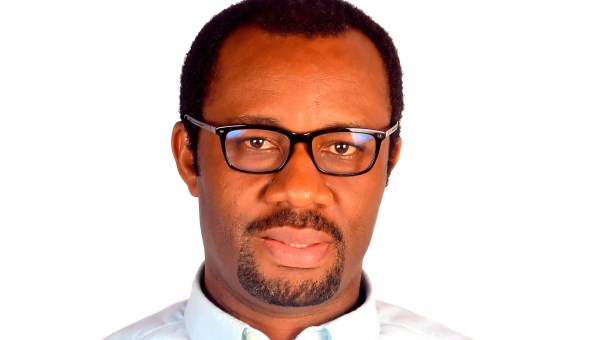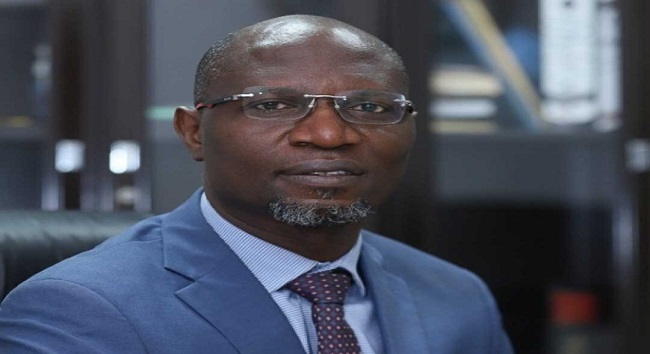News
Increasing demand for data in Africa: Could this be a Solution?

By Anthony Okenwa
Africa has become a home to over a billion people and the population is expected to grow in the coming years. The sector of Information and Communication Technology (ICT) is essential for Africa’s development and adequate ICT service deployment and digital connectivity will play a crucial role in the continent achieving economic sustainability.

The forecast is that mobile data traffic in Sub-Saharan Africa is estimated to grow by 12 times the current figures, with total traffic increasing from 0.33 Exabytes (EB) per month to 4EB by 2025. Meanwhile, average traffic per smartphone is expected to reach 7.1GB over the forecast period, according to the Ericsson Mobility Report.
Key drivers will be extensive network coverage and the reduction in prices of both devices and services. Also, driven by the rapid rise in access to relevant video content, with new players who provide and aggregate local content finding initial success in larger markets.
The increase of mobile data traffic in Africa is driving operators to look at opportunities to optimize their network capacities, including complementing capacity via Wi-Fi networks.
Hence, mobile and fixed networks have become key components of critical national infrastructure in Africa. In Sub-Saharan Africa, LTE accounted for around 11% of subscriptions in 2019.
Over the forecast period, mobile broadband subscriptions are predicted to increase, reaching 72% of mobile subscriptions. LTE share will reach around 30% by the end of the forecast period, and LTE subscriptions are set to triple, increasing from 90 million in 2019 to 270 million in 2025.
Driving factors behind the growth of mobile broadband subscriptions include a young and growing population with increasing digital skills. Declining data prices, and an increase in the accessibility of smartphones due to lower prices is also driving growth.
As the demand for mobile data increases, more ICT investment in mobile broadband is the crucial solution to meet future requirements.
For service providers, investment and modernization of networks is the essential way to meet demand for data and future-proof operations for the benefit of all stakeholders.
It also enables them to provide their mobile broadband community with the highest quality of service available, delivered via cutting edge infrastructure and technology to ensure a superior mobile experience for customers.
Access to high-quality broadband services is based on networks that supports rapid growth in internet traffic as well as competitive pricing. There is supporting evidence that proves that a rise in mobile broadband penetration can be linked to economic growth and job creation.
Although supporting evidence may vary in its estimation on the exact contribution to the economy, there are enough to support these claims in that an increase in broadband penetration are associated with increases in Gross Domestic Product (GDP), creating jobs, increase of educational opportunities, and enhancing service delivery and rural development.
However, there are four key requirements needed to be addressed to establish the link between broadband penetration and economic growth:
- Broadband must reach a critical mass of a country’s citizens; –
- Broadband access must be affordable;
- Demand-side skills must be developed to optimize broadband services for personal and business use
- Supply-side skills need to be developed in order to exploit the innovative potential of broadband
The GSMA has estimated that an increase in penetration of mobile data, can be linked to an increase in annual GDP growth of a minimum of 0.5%. As wireless connectivity enables business to be done on the go, it allows information and services to be access anywhere, and will create new services and industries.
It has been stated that the mobile industry in Africa is a key contributor to a country’s economy and enables new economic activity in other sectors with the adoption of IoT.
As an augmentation of current mobile technologies, 5G could consequently ensure significant economic advantages for a country’s citizens. However, the characteristics in speed, reliability and latency means that 5G can potentially be a technology which will enable new markets, develop and transform current industries, as well as support socio-economic benefits.
Anthony Okenwa is Head of Project Management Operations- Ericsson West Africa
News
SEC Cracks Down on Influencers, Bloggers Promoting Fraudulent Investment Schemes

Securities and Exchange Commission (SEC) has issued a stern warning to social media influencers, bloggers, and celebrities, urging them to desist from promoting unregistered and fraudulent investment schemes. The warning was issued by the SEC’s Director-General, Dr Emomotimi Agama, in a notice released on Sunday in Abuja.

Dr Agama noted that the Commission is working in close collaboration with the Economic and Financial Crimes Commission (EFCC), the Nigeria Police Force, and other relevant government agencies to identify and prosecute those found guilty of flouting investment regulations.
Highlighting the provisions of the newly enacted Investments and Securities Act (ISA) 2025, Dr Agama said the law specifically targets the promoters of unregistered investment schemes, including individuals who use their platforms to endorse such ventures.
“The law also covers influencers and bloggers who promote fraudulent schemes, with clear penalties, including imprisonment,” he stated.
Citing the recent collapse of CBEX—a digital investment platform accused of defrauding Nigerians of over ₦1.3 trillion—Agama described the incident as a stark reminder of the dangers posed by unregulated financial platforms. CBEX allegedly promised unrealistic returns and falsely claimed international partnerships.
“The collapse of CBEX underscores the urgency of our crackdown. We are shutting down their operations, and the promoters will face the full weight of the law,” he added.
Agama reiterated the Commission’s resolve to protect investors and develop Nigeria’s capital market. He urged Nigerians to verify any investment opportunity with the SEC before committing their money, advising: “If it sounds too good to be true, it probably is.”
He also reassured the public of the SEC’s capability to detect and shut down Ponzi schemes, stating, “We have dealt with similar schemes in the past and will continue to do so, leveraging the powers of the ISA 2025 to safeguard investors.”
In a bid to strengthen regulatory oversight, the SEC has established dedicated departments tasked with monitoring market activities and conducting inspections aimed at detecting irregularities early.
“These proactive measures are designed to prevent large-scale frauds like CBEX from recurring,” Dr Agama said.
He concluded by emphasising the significance of the ISA 2025 as a critical tool in securing the Nigerian investment landscape and building a resilient and transparent financial market.
News
SERAP Files Lawsuit Against NBC Over Ban on Eedris Abdulkareem’s Protest Song Tell Your Papa

Socio-Economic Rights and Accountability Project (SERAP) has filed a lawsuit against the National Broadcasting Commission (NBC) over its ban on Eedris Abdulkareem’s song Tell Your Papa, which allegedly criticizes President Bola Tinubu’s economic policies.

The NBC prohibited the song from being aired on radio and television, citing its “objectionable nature” and violation of “public decency standards.” SERAP, however, argues that the ban is arbitrary, illegal, and unconstitutional.
In the suit numbered FHC/L/CS/797/2025 filed at the Federal High Court in Lagos, SERAP is seeking an order to nullify the ban, describing it as inconsistent with the rights to freedom of expression, access to information, and media freedom. The group is also requesting a perpetual injunction to prevent NBC or any other authority from barring the song from being aired on broadcast platforms across Nigeria.
According to SERAP, the NBC’s April 9 directive to all broadcast stations banning the song is unlawful and incompatible with constitutional and international human rights standards. The organization states that censorship under the guise of “protecting public decency” cannot justify suppressing dissent or political commentary.
SERAP emphasizes that freedom of expression includes not only agreeable ideas but also those that challenge, shock, or disturb. It argues the ban has a chilling effect on artistic freedom and public discourse, noting that the NBC has not demonstrated any specific harm that the song might cause to legitimate state interests.
The group also challenges Section 3.1.8 of the Nigeria Broadcasting Code, describing it as overbroad and excessively intrusive. It argues that vague standards like “objectionable content” and “public decency” should not serve as pretexts for suppressing music critical of government policies.
Filed on behalf of SERAP by lawyers Kolawole Oluwadare, Oluwakemi Agunbiade, and Valentina Adegoke, the suit insists that all individuals have the right to freedom of expression and artistic creativity. The ban, they argue, fails to meet legal standards of necessity and proportionality.
Art, SERAP notes, plays a vital role in democratic societies by fostering dialogue, counter-narratives, and reflection on societal issues. Suppressing such expression stifles debate and undermines democracy.
The organization maintains that NBC’s action violates Section 39 of the 1999 Constitution, Article 9 of the African Charter on Human and Peoples’ Rights, and Article 19 of the International Covenant on Civil and Political Rights (ICCPR), to which Nigeria is a signatory.
Article 19 of the ICCPR protects the right to freedom of expression, including the freedom to seek, receive, and impart information and ideas in any form, including art. SERAP warns that unjustified censorship not only harms artists but also weakens public engagement, artistic livelihoods, and democratic culture.
News
Airtel Smartcash Set to Power Stress-Free Easter with Seamless Cashflow

As Nigerians prepare to celebrate Easter with loved ones across the country, leading mobile money operator Smartcash Payment Service Bank (PSB) has announced an easier system by which customers may upgrade their wallets from Tier 1 to Tier 3 for a smooth, cashless, and stress-free holiday experience.

Offering improved security, access, and reliability, the Smartcash app now enables instant verification with customers’ NIN or BVN, secure facial recognition with a selfie, and simplified address confirmation.
Upgrading from Tier 1 wallet provides higher transaction limits and access to more features and benefits as well as security.
According to the Chief Executive Officer of Smartcash PSB, Tunde Kuponiyi, Smartcash is concerned with ensuring a stress-free experience for customers.
“As the Easter season approaches, we recognize the financial pressure and logistical challenges that often come with holiday spending and mobility. That’s why we’re committed to ensuring that our users can carry out essential transactions from bank transfers to merchant payments quickly, safely, and conveniently.
“Our goal is to eliminate the stress of cash handling, long queues, and bank branch visits, so that Nigerians can truly focus on the spirit of the season connection, community, and celebration,” he said.
Smartcash PSB is providing a reliable, cashless alternative that meets the financial needs of users wherever they are. Whether it’s sending money to loved ones, paying at local markets and stores, or topping up airtime and data, Smartcash users can look forward to uninterrupted and efficient services throughout the holiday season.
Airtel Smartcash PSB, which launched as part of Airtel’s commitment to deepen financial inclusion, has rapidly expanded its network of agents and digital wallet users, bridging access between underserved communities and the financial system.
With services available through mobile phones and human agents across Nigeria, Smartcash offers a simple and accessible entry point into the digital economy particularly for small-scale traders, artisans, rural dwellers, and other players in the informal sector.

 Telecom1 day ago
Telecom1 day agoMTN Nigeria Takes Broadband Services to the Next Level with FibreX Launch

 News1 day ago
News1 day agoSERAP Files Lawsuit Against NBC Over Ban on Eedris Abdulkareem’s Protest Song Tell Your Papa

 E-Financial1 day ago
E-Financial1 day agoFCMB Group Redefines Corporate Storytelling with The Power Of The Group TVC

 E-Financial3 hours ago
E-Financial3 hours agoCBN, NGX Group Defend Economic Reforms at Nasdaq

 General News3 hours ago
General News3 hours agoEFCC Clarifies SCUML Certificate Misuse Amid CBEX Ponzi Scheme Scandal

 Telecom3 hours ago
Telecom3 hours agoDigital Transformation Remains Africa’s Gateway to Economic Advancement – Adumike

 Telecom3 hours ago
Telecom3 hours agoPAFON 2.0: Experts Discuss Pathways to Boost Financial Inclusion in Nigeria

 E-Business3 hours ago
E-Business3 hours agoGold Hits Record High Amid U.S. Dollar Weakness and Trade Tensions















